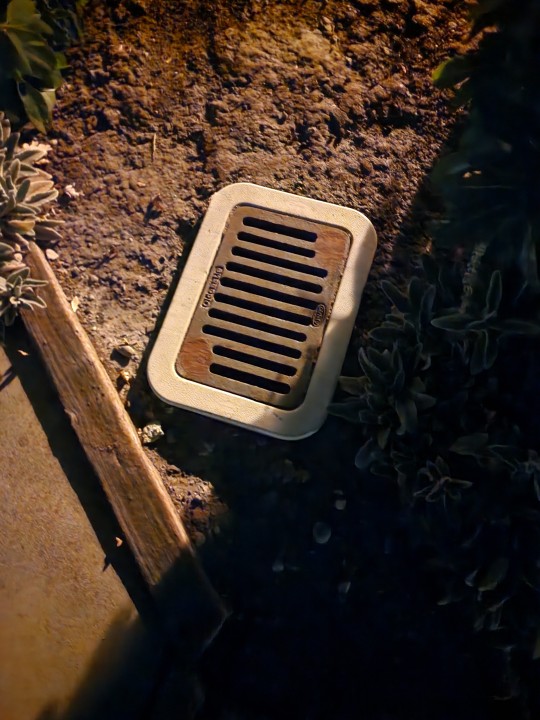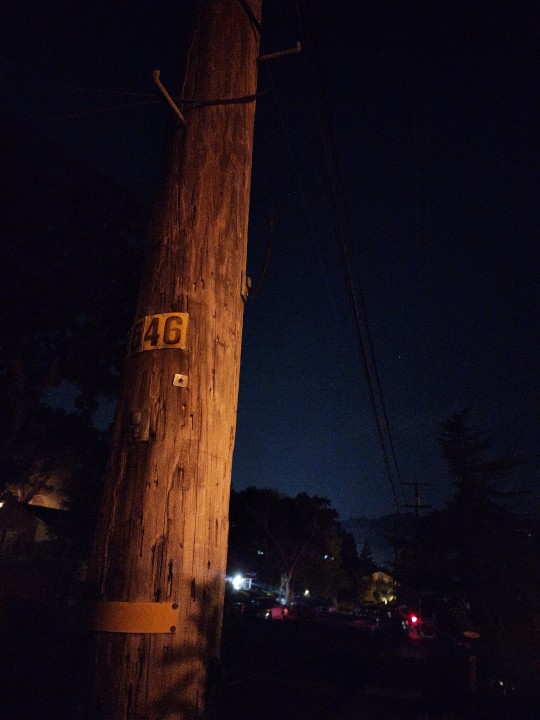#oldcastle
Explore tagged Tumblr posts
Text



Illustration pour un manuel de 6ème. (BELIN Education).
#Andersen#Perrault#beautyandthebeast#tales#fairytale#illustration#photoshop#littlemermaid#oldcastle#princesses#witch#hag#sorciere#petitesirene#grenouille#frog
887 notes
·
View notes
Text

#IFTTT#Flickr#bamburghcastle#bamburgh#castle#northumberland#england#uk#castillo#castell#beach#beautiful#beachscape#coast#coastal#old#building#castles#castlewalls#englishcastle#oldcastle#categoryalistedstructure#listedstructure#oldstonestructure#oldstructure#seasidestructure#structure#stonestructure#buildings#listedbuilding
57 notes
·
View notes
Text
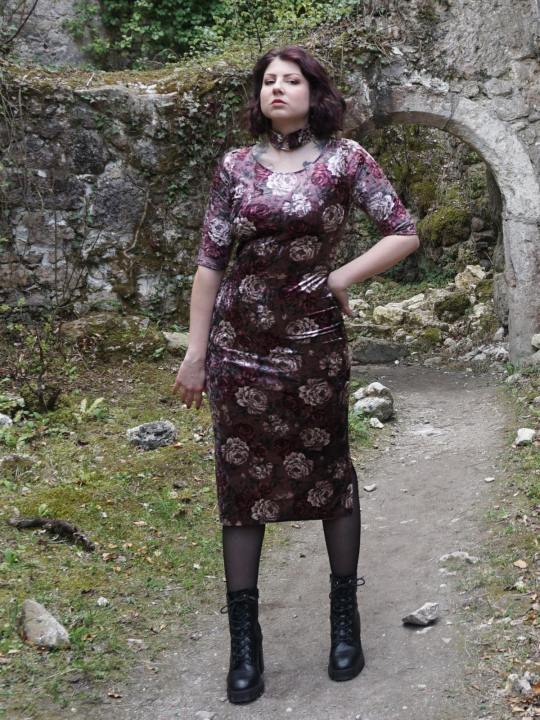
www.shopdarkona.com
#darkona#shopdarkona#embraceyourdarkness#gothgoth#gothic#art history#gothstyle#neodark#darkstyle#goth aesthetic#velvetdress#velvetlover#floraldress#colorfulgoth#darkromance#darkelegance#oldcastle#velvetchoker
0 notes
Text
I think a lot about Isabelle of Valois and Henry of Monmouth during Richard II's deposition. Two children whose lives were picked up and turned around, changed irrevocably by the deposition. There were other children caught up in, of course. The children of those executed in the Epiphany Rising. The children of those executed and murdered as part of Richard's revenge against the Lords Appellant. The teenaged Humphrey of Gloucester dying around the same time as Richard was deposed.
But none are quite so central to the story as Isabelle and Henry. How personally traumatic it was for them is unknowable and perhaps, in Henry's case, debatable. At the very least, it seems reasonable to assume that the deposition constituted a loss of childhood innocence for both of them. If Richard II's court was defined by a "culture of childhood", as Deanne Williams and James Simpson suggest, perhaps its destruction with Richard's deposition and Henry IV's assertion that the ideal king was one who had matured into manhood finds its ultimate symbol in the lives of Isabelle and Henry, uprooted by the events of 1399.
#there is obviously a lot of debate about what medieval childhood looked like and i'm not saying here#that they were obviously treated as adults from 1399 - the evidence suggests they were still treated as minors for several years after 1399#but that it marked a metaphorical 'end' to their childhood marked by a loss of innocence and being forcing them to grow up fast#re: henry of monmouth's debatable trauma.#paul strohm argues that the story of henry v's fondness for richard was a propagandistic narrative openly promoted by henry v himself#and since those narratives are our main source for their relationship then the truth of this fondness can be debated#which would mean henry might not have cared about richard's deposition and been like 'oh boy now i'm going to be king :D :D :D :D'#however strohm is extremely cynical of henry v and takes it a bit into 'ok now you're being weird about it' areas#(cf. his oft-cited claim that the oldcastle rebellion and southampton plot were 'faked' by henry)#even if it was the case that henry was personally untroubled by the deposition the deposition still marks the end of childhood innocence#given he will shortly become the target of an assassination plot and start having to fight for his father's throne and his own life#isabelle of valois#isabelle de valois#henry v#blog
16 notes
·
View notes
Text
Shakespeare Weekend
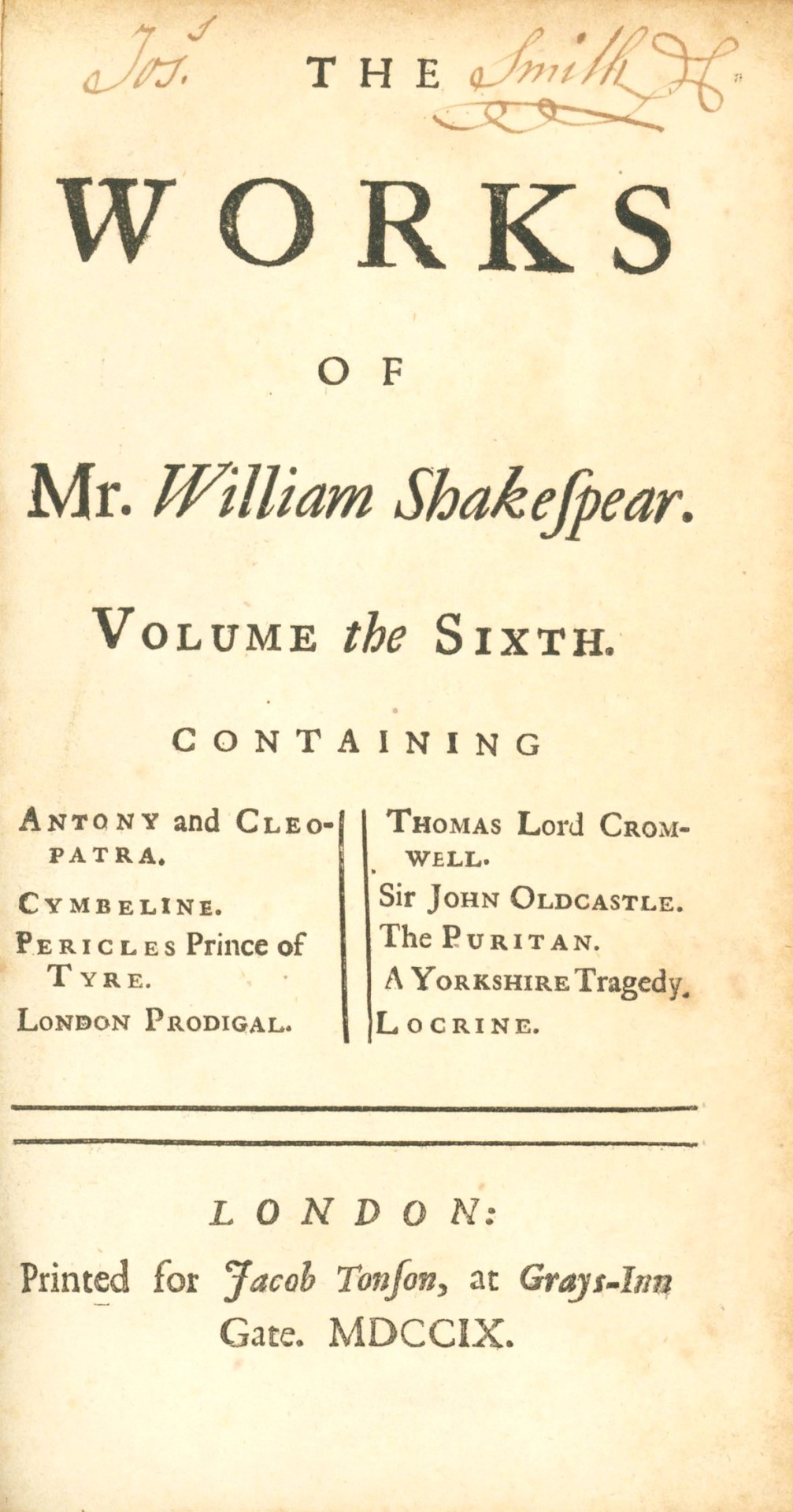


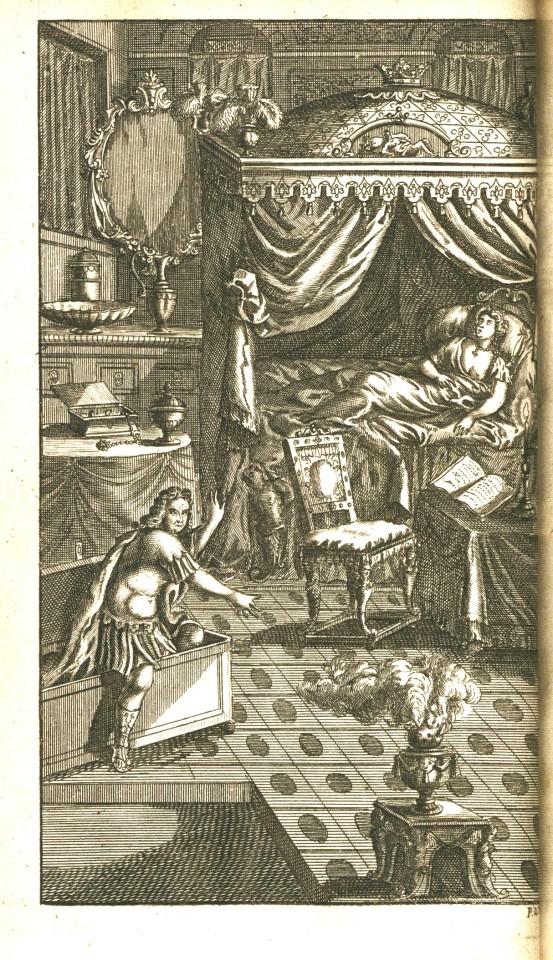
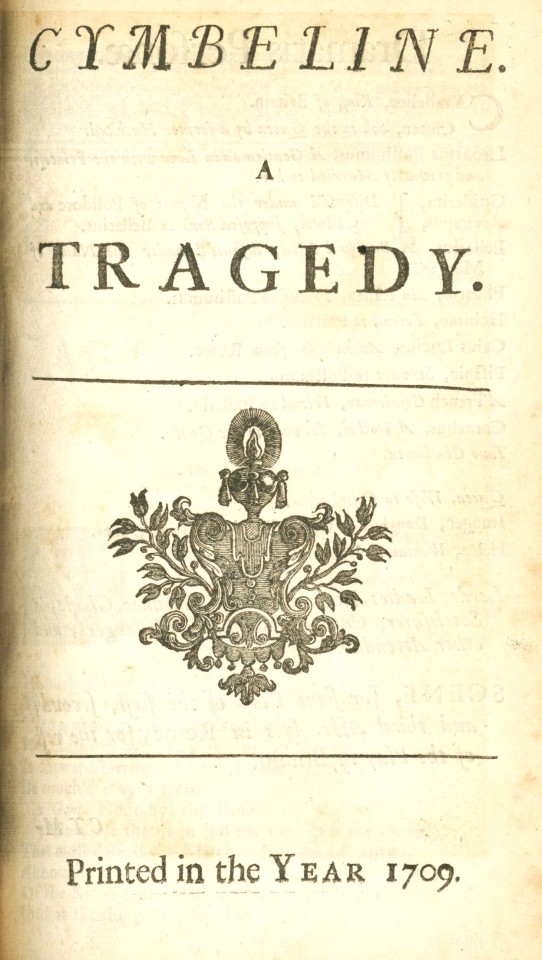
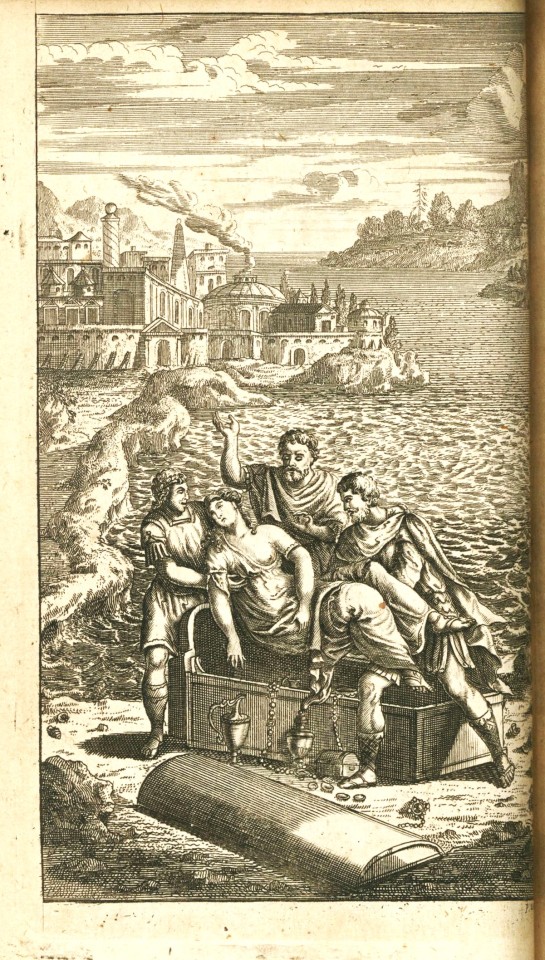
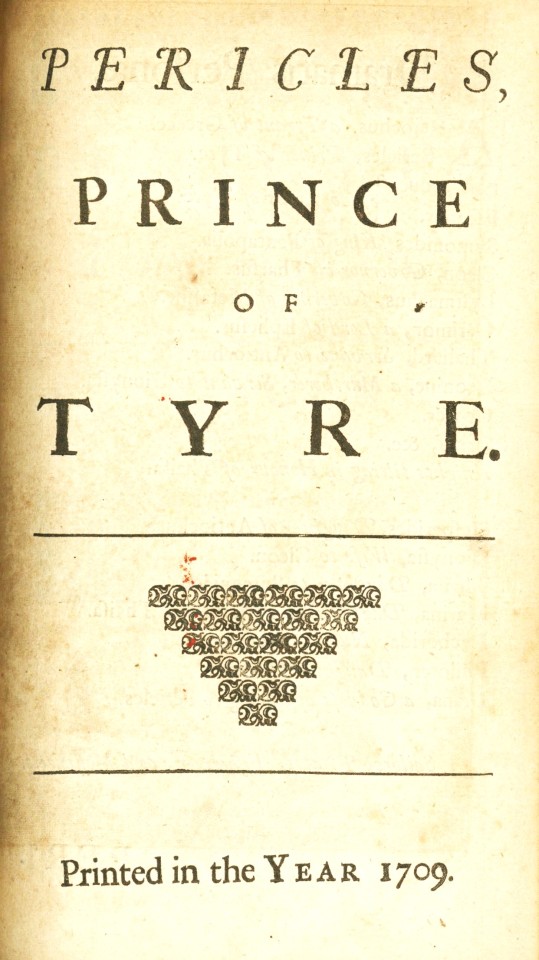

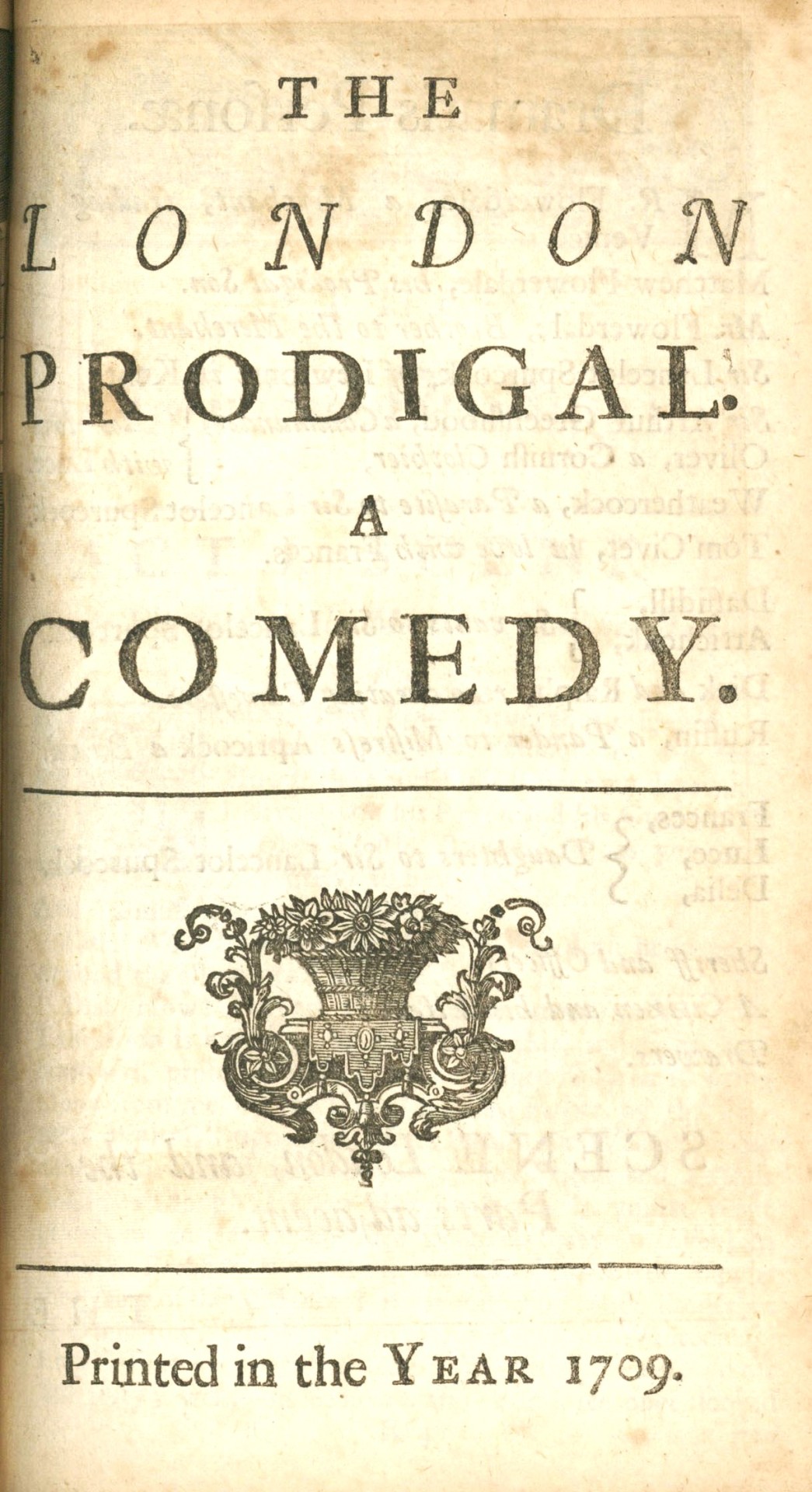

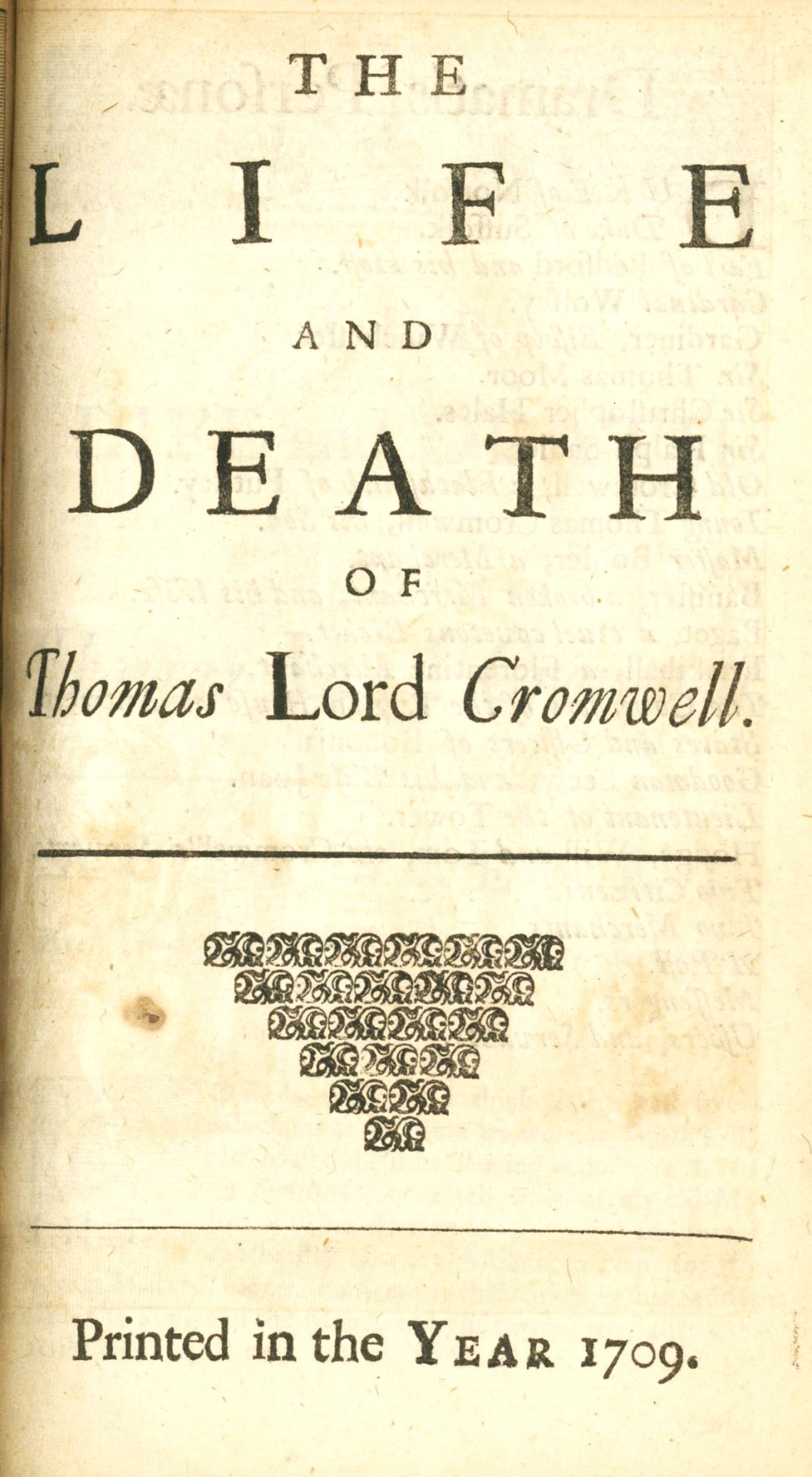
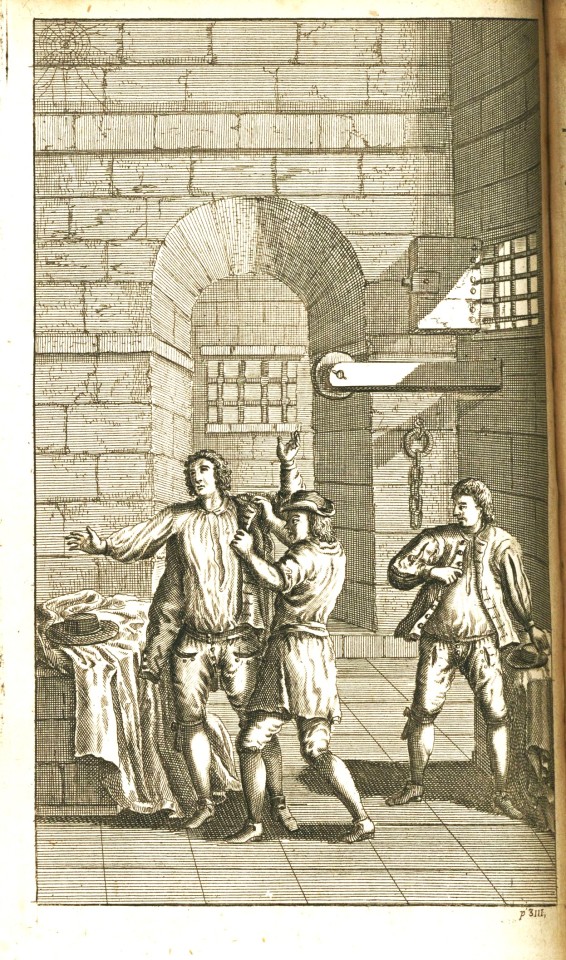

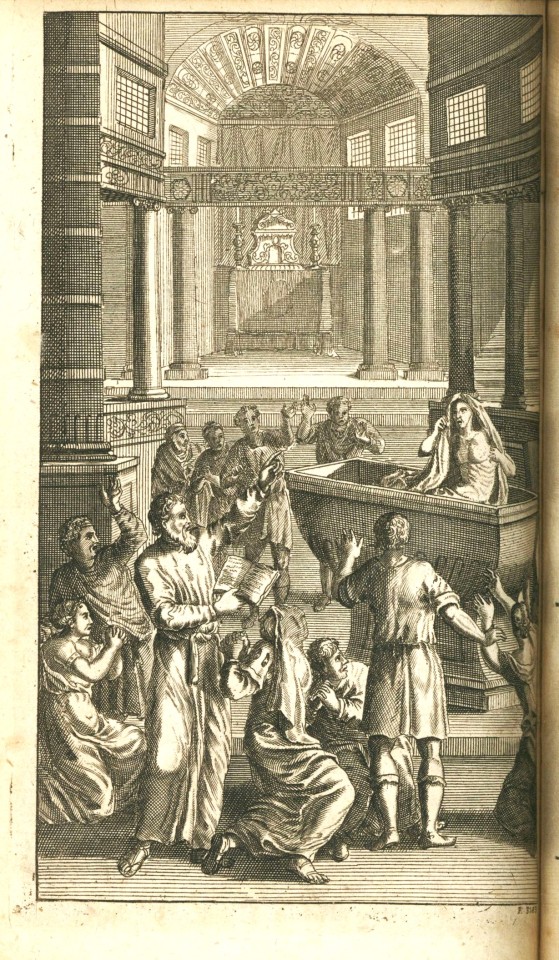





This weekend we are wrapping up Nicholas Rowe’s (1674-1718) The Work of Mr. William Shakespear; in Six Volumes. Published in London in 1709 by Jacob Tonson (1655–1736), this second edition holds an important place within Shakespearean publication history. The Work of Mr. William Shakespear; in Six Volumes is recognized as the first octavo edition, the first illustrated edition, the first critically edited edition, and the first to present a biography of the poet.
Volume six is a collection of Shakespeare’s tragedies and comedies including several plays that are a part of the Shakespeare apocrypha that bear Shakespeare’s name, but do not appear in the First Folio and of which there is question about his role in writing them. Apocrypha in the sixth volume include Pericles Prince of Tyre, London Prodigal, Thomas Lord Cromwell, Sir John Oldcastle, The Puritan, A Yorkshire Tragedy, and Locrine. Volume six also includes confirmed Shakespearean plays Antony and Cleopatra and Cymbeline.
A full-page engraving by the French Baroque artist and book illustrator François Boitard (1670-1715) and engraved by English engraver Elisha Kirkall (c.1682–1742) precedes each play. Boitard’s illustrations often place readers at the pinnacle of the plays depicting high drama in his classic Baroque style.
In addition to Rowe’s editorial decisions to divide the plays into scenes and include notes on the entrances and exits of the players, he also normalised the spelling of names and included a dramatis personae preceding each play. The only chronicled critique of Rowe’s momentous editorial endeavor is his choice in basing his text on the corrupt Fourth Folio.
View more volumes of The Works of Mr. William Shakespear; in Six Volumes here.
View more Shakespeare Weekend posts.
-Jenna, Special Collections Graduate Intern
#Shakespeare Weekend#william shakespeare#shakespeare#mr. william shakespear in six volumes#nicholas rowe#jacob tonson#Shakespeare apocrypha#apocrypha#francois boitard#elisha kirkall#antony and cleopatra#cymbeline#pericles prince of tyre#london prodigal#thomas lord cromwell#sir john oldcastle#the puritan#a yorkshire tragedy#locrine
44 notes
·
View notes
Text
I don't think Driftmark gets cold enough for snow except in the longest and worst of Winters, so it's always a shock to the residents (including the Velaryons) when they do experience, either through traveling to the North or during said long and awful Winters.
#ooc ;#laenaera when she moved to oldcastle and it snowed the first time: WHAT THE FUCK AM I SUPPOSED TO DO WITH THIS#making headcanons about my current situation while i answer asks <3
3 notes
·
View notes
Text
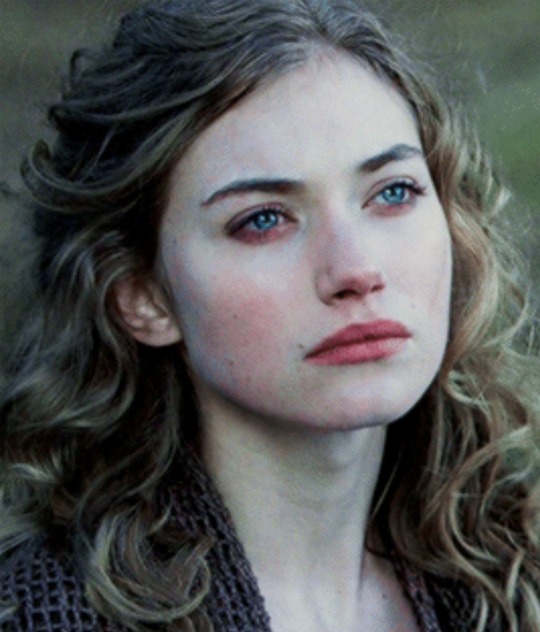
my darling girl Juliette Locke, Robb’s female counterpart in the 294th Hunger Games. She was born the third child of a fourth son, and would not have had great marriage prospects had she not been Reaped with Robb. She grew up in Oldcastle, which is on the coast of the North, southeast of White Harbor. Oldcastle is on a cliff above the beach, and has a lighthouse tower, which is often used as a landmark to ships that they’re almost at White Harbor. Aside from normal lady things like sewing and singing and dancing, Juliette is good at swimming, decent at catching fish, has great stamina from running up and down the cliff steps her whole childhood. Her father taught her how to use a dagger — mostly for preparing fish and basic self defense — in case she was ever Reaped. Oldcastle has a lot of fishermen, so she knows the basics of tying nets. Definitely more prepared for a watery arena than a foresty one.
Her mother died in childbirth along with the babe when Juliette was 12, and her younger brother, who was eight, clung to her — Juliette was old enough to remember the songs their mother used to sing and was willing to sing to him at night.
Their arena is a small island in the Sea of Dorne, and neither Robb nor Juliette handle the higher temperatures very well. Juliette teaches Robb to swim in the surrounding ocean. After another tribute nearly kills Juliet because he yanked on her braid, Robb, rather than demand she cut her hair, spends hours searching the beach for broken shells she can braid to cut up the hands of anyone who tries to grab it — Robb likes her hair and doesn’t want to see it gone if he can help it. Juliette is fully prepared to kill herself if it manages to come down to her and Robb — Robb is meant to be the next Lord Paramount of the North, and wasn’t supposed to be Reaped to begin with, she wants him to be able to go home. Juliette has a bad habit of giving most of her fish to Grey Wind — she thinks he’s just the cutest thing ever, and as she claims, he deserves it for protecting them and being such a good boy. Robb thinks it’s great that she cares for his direwolf so much, but he really wishes she would eat more of her own food — Grey Wind can hunt and is far safer than they are doing so.
#inkandarsenic#game of thrones#robb stark#robb stark x oc#hunger games au#ink writes#I made all that up about Oldcastle btw#couldn’t find anything about so I made my own lore
5 notes
·
View notes
Text
I now understand the working for retail store to working for their vendors pipeline.
#chit chat#fuck dude primesource and oldcastle will pay 22 an hour just for me to drive a fucking forklift????#i don't even have to talk to customers????#pepsi will train driver???#sign on bonuses???#and no customers????#really at this point im 👀👀👀 anything where you don't have to interact with customer#I'm so fucking tired of customers#im considering working at amazon so i don't have to deal with them#and i already know the conditions of working there
2 notes
·
View notes
Text
Two things
One, all the murders that Gilles de Rais was involved with happened years after his association with Joan of Arc so it’s unfair to put the blame on her
Two, if were guilting people for their friends, then Henry V would a bad choice for Catholic sainthood since one of his best friends, John Oldcastle was a leader of the Lollard heresy which denied the priestly right to absolve sins and saw icons as idolatry. Henry was made aware of this but played defense for him for quite a while until Oldcastle tried to kidnap and dethrone him. So take that as you will
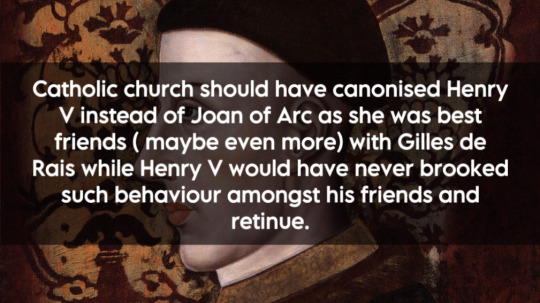
13 notes
·
View notes
Text
This little butterfly was too fast for the kitten! How am I meant to get any work done around here with these guys looking for petting?
Follow @the_poppy_garden for more cuteness!
#kittens #gardeninginireland #meath #oldcastle #gardeninspiration #opengardens #boynevalleygardentrail #opengardensireland #boynevalleygardentrail #irishgardens
105 notes
·
View notes
Text
Some Lore About Kaleb’s Lesser Known Children



Brandon Waters || Gawen Arryn || Alyssa Locke
Brandon Waters
Brandon Waters is the bastard son of Kaleb and Alicent Hightower. He was born during Alicent’s final years, while she was kept prisoner in the Red Keep. Unfortunately, she died shortly afterwards, leaving Brandon’s fate to be decided by his father and the court. They came to the decision that Brandon would remain in King’s Landing and would be raised alongside the young king, and when he came of age, at the same time which he became a squire, he became King Aegon III’s cupbearer.
Growing up, Brandon and Aegon became very close, coming to view each other as brothers. Brandon was exceptionally loyal to Aegon, and in turn Aegon looked out for his young friend. They remained best friends until Aegon’s death.
As a boy, Brandon had feelings for Jaehaera, but he of course never acted on them. After her death, which left him devastated, he accompanied Aegon in his search for a new wife, and one of his potential brides, Myrielle Peake, caught Brandon’s attention, who ended up returning his affections. When they were both older, Brandon would eventually marry Myrielle and have three children by her: Rowan, Addam, and Martyn.
Brandon would eventually become a knight serving under Aegon, although he turned down the offer to join the Kingsguard in order to marry Myrielle. He participated in jousts and was quite popular, especially with the smallfolk.
His relationship with Kaleb is good, even though he doesn’t see him often, and Kaleb refused to legitimize him in order for Tristan’s son to succeed him as Lord of Raven’s Keep instead. They often exchange letters, and when they are able, they visit one another. Kaleb is very proud of his son!
Gawen Arryn
Gawen is the son of Kaleb and Jeyne Arryn, his second wife (the marriage having been arranged by the Small Council). Unfortunately, Jeyne died only a year after his birth, leaving him with very little memory of her. After her death, Kaleb returned to Raven’s Keep to resume his lordship, meaning that Gawen was left in the care of Jeyne’s court and the few living relatives in the Vale that he had.
Having assumed lordship of the Vale at such a young age, Gawen’s rule was incredibly unstable, as he was constantly faced with competition from other Valemen who sought to claim it from him. Multiple plots were made against him, although none but one ultimately proved successful. In response, Gawen did everything possible to assert his legitimacy, from the way he dressed to proclamations to the way in which he ruled. He relied heavily on his council for guidance, although he also proved to be somewhat vain and impulsive, making him hard for them to control.
He was known for being a womanizer, having multiple relationships (including one with one of Aegon II’s bastard daughters) and several rumored bastards, although by the time of his death none were claimed (but there was good evidence of at least some being his children). However, upon his betrothal to Cynthea Tully, he became devoted entirely to her. It was love at first sight, and it was very passionate love indeed. At the time of his and Cynthea’s deaths, despite them having yet to be wed, it was believed that Cynthea had been pregnant.
Unfortunately, Gawen died very young during a tragic “accident”, although it is speculated that it was plot against him considering the swiftness by which his successors took over afterwards. During a jousting tournament which Gawen was participating in, he was impaled through the eye by his opponent’s lance, killing him almost instantly.
Alyssa Locke
Alyssa is the daughter of Kaleb and Jessamyn Redfort, his third and final wife. She grew up in Raven’s Keep with both of her parents, the only one of Kaleb’s children to have a stable upbringing with both parents present.
She lived a much quieter life compared to that of her siblings. When she was of age, she was married to Theodan Locke, the lord of Oldcastle, and they had three children: Benjicot, Daryn, and Shyra.
Alyssa was very close with Kaleb in particular, and she would be the author of the history of his life, The Life Chronicle of Kaleb Dormaire, which is still read into the time of Nadya and her brothers. She was a very skilled writer and historian, more so than most scholars of her time, and is well-renowned by her descendants.
16 notes
·
View notes
Text

www.shopdarkona.com
#darkona#shopdarkona#embraceyourdarkness#gothic#goth aesthetic#art history#gothstyle#neodark#darkstyle#gothgoth#leopardprint#sirendress#maxidress#longdress#colorfulgoth#oldcastle
0 notes
Text
The most enduring element in the mythology which surrounded the man who has been regarded as the greatest of English kings has been the story of his wild and scandalous behaviour as Prince – behaviour which was banished for ever by a sudden and total reformation when he became king. Historians have speculated for centuries upon whether the 'charges' against the Prince were true; whether they were supported by objective evidence as against popular legend, and whether his known record of public service was compatible with the discreditable tales of debauchery and riotous indiscipline. This traditional approach may be a little naive. There is no serious doubt that anyone, especially a young man as dynamic and enterprising as the Prince, could have found time amidst his official responsibilities to indulge in disreputable or frivolous activities. There is likewise no real doubt that two such diverse facets of personality could be combined in one person. The question which ought to be asked is whether conduct which in itself would surely have been regarded as basically 'normal' in a young prince or lord would have been of sufficient consequence or interest to merit the emergence of a very positive legend; especially as it seems that any dubious pursuits were not allowed to interfere with his public duties and political aspirations. The existence and perseverance of the story is surely evidence not merely of its popular appeal, but of its importance; and it may be reasonable to assume that this importance lay not in the precise nature of the Prince's alleged misconduct, but in his conversion at his accession. Was this momentous conversion really only from sexual indulgence and practical jokes? Or was there something more serious in his years as Prince which the chroniclers wished to emphasise that he had put behind him irrevocably? Had he changed in some profound way which was better recorded for posterity in simple and non-controversial terms? In one sense the Prince did indeed abandon, at his accession, one form of unconventional and questionable behaviour. He put behind him personal and political conduct which had led to charges that he had departed from the standard of honesty, loyalty and duty which were considered proper in the dealings of a son with his father and a subject, however exalted, with his king. His father's death meant that the Prince did not actually have to do anything to change this aspect of his image, and his literary admirers might well have felt a need to express this change in a way which was more creditable to his memory.
Another possibility is more directly relevant to the events of the foregoing narrative. It is fairly common knowledge that the original of the Falstaff character in Shakespeare's Henry IV plays was Sir John Oldcastle, and there is little doubt that there was a tradition linking the Prince with the real Oldcastle in some form of reprehensible conduct. Only the sternest of puritans, however, would have been likely to have censured the carousing of Prince and knight in hostelries in London or on their Welsh border campaigns. There would have been more cause for concern if there had ever been a suggestion that the Prince had shared or sympathised with Oldcastle's Lollard convictions. The fact that the Prince had been associated with Oldcastle at all, given the latter's heretical professions in 1413 and his treason in 1414, might need to be explained away. Association with Oldcastle was not proof of Lollard sentiments; yet there were obviously anti-clerical or Lollard elements in the parliament of 1410 who hoped for the support of the new ministry which was coming into being under the Prince's leadership. If the chroniclers' stories of 'reformation' were inspired by misgivings about the Prince's attitude towards the Church and the heresies of Oldcastle and his allies, it might indeed seem appropriate to date it from the first year of his reign as Henry V, when Oldcastle was called to account for his beliefs and Henry supported his old opponent Archbishop Arundel in condemning the heretical opinions of a man who had once been a loyal servant and personal friend of the Prince. Here, too, can be seen an analogy with Shakespeare's account of Henry V's rejection of Falstaff.' Yet it was surely more than three years earlier that the critical decision was made; when the Prince's initially ambiguous conduct ended in his decision to be personally responsible for committing Badby to the flames. If anyone was looking for the Prince's conversion on a religious issue by 1413, it was not the orthodox, but any remaining optimists among the Lollards.
Peter McNiven, Heresy and Politics in the Reign of Henry IV: The Burning of John Badby (The Boydell Press 1987)
10 notes
·
View notes
Text
The Hal POV of the dagger incident fic has now hit 30k, jfc.
This fic has everything:
Hal’s daddy issues
Hal's dead mummy issues
Sad Edward
Tragic sibling foreshadowing.
Fountains
Henry IV's Cronus complex
Boners
The Wilton Diptych
awkward relationship with your stepmum
John Bradmore mention
Richard II feels
Hotspur feels
Courtenay celebrating mass
A breakdown
Courtenay being a fucking weirdo for Hal
Henry Beaufort as Hal’s wine aunt
Scrope of Masham yelling
Humphrey cameo
Archbishop Arundel being a bitch
brothers being Brothers
Sir John Oldcastle
and yes, an incident involving a dagger
#john is in the north and glad he's not present for this Hot Mess#text posts#fic talk#hal's dagger incident
7 notes
·
View notes
Text
"what if there were a place called [logical inversion of an element of a place name]?" is always a bad idea. "what if there was a place like newcastle except it's called oldcastle?" there is. it's called oldcastle. "what if there was somewhere like essex, but in the west?" there was. it was called wessex
28 notes
·
View notes
